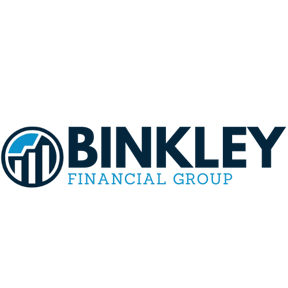Life Insurance for Business Owners: Ensuring Continuity and Financial Security
Brandon Binkley
10/10/2024
As a business owner, you're not only responsible for your family’s financial future but also for the livelihood of your employees and the continued success of your business. Life insurance is a critical tool for ensuring your business can thrive even if something unexpected happens to you. It can help protect your family, business partners, and employees by providing financial security and continuity in the event of your death.
In this post, we’ll explore how life insurance can protect your business and family, the different types of policies available for business owners, and key strategies for integrating life insurance into your business planning.


Why Do Business Owners Need Life Insurance?
Ensure Business Continuity:
Life insurance can help keep your business running smoothly by providing the necessary funds to cover operational expenses, debts, and employee salaries in the event of your death. Without this coverage, your business could face significant financial challenges.
Example: If you pass away unexpectedly, life insurance can ensure your business has the funds to cover payroll, ongoing projects, or other operational costs, preventing disruption and allowing your business to stay afloat.
Fund Buy-Sell Agreements:
If you have business partners, a buy-sell agreement funded by life insurance ensures that your ownership shares can be bought out by the surviving partners. This prevents conflicts, ensures fair compensation, and protects your family from being burdened with business decisions.
Example: If you and your business partner have a buy-sell agreement funded by life insurance, the death benefit can be used to buy out your ownership stake, ensuring that your family receives fair compensation and your partner retains control of the business.
Pay Off Business Debts:
Many business owners take out loans to finance their operations or expansions. Life insurance can be used to pay off these debts, ensuring that your family or business partners are not left responsible for repaying them in the event of your death.
Example: If you have a significant business loan, the life insurance death benefit can be used to pay off the balance, protecting your family and partners from financial strain.
Protect Key Employees (Key Person Insurance):
Key person insurance is a type of life insurance that covers crucial employees whose death would have a major impact on the business. This coverage ensures that the business has the financial resources to recover from the loss of a key employee and to recruit and train a replacement.
Example: If a top executive or salesperson who is critical to your business passes away, key person insurance provides a financial cushion to help your business stay operational while finding a replacement.
Provide Financial Security for Your Family:
As a business owner, your personal finances are often tied to the success of your business. Life insurance ensures that your family is financially secure, even if the business experiences difficulties after your death.
Example: A life insurance policy can provide for your family’s living expenses, education costs, and other financial needs, allowing them to maintain their standard of living even if the business struggles or is sold.
Types of Life Insurance for Business Owners
As a business owner, you can choose from a range of life insurance options, depending on your goals and financial needs:
Term Life Insurance:
Overview: Provides coverage for a set period (e.g., 10, 20, or 30 years). It’s the most affordable option and is ideal for covering temporary needs, such as funding a buy-sell agreement or paying off business loans.
Best For: Business owners who need coverage for a specific time frame, such as until a loan is repaid or until the business becomes self-sustaining.
Example: A 20-year term life insurance policy can be used to cover a business loan during the years when the business is most financially vulnerable.
Whole Life Insurance:
Overview: Provides lifelong coverage and includes a cash value component that grows over time. This policy can be used to ensure business continuity and build a financial asset that can be borrowed against during the owner’s lifetime.
Best For: Business owners who want lifelong protection and the ability to accumulate cash value that can be used as a financial resource.
Example: Whole life insurance can be used to fund a buy-sell agreement, while also building cash value that you can use to cover business expenses or invest in growth.
Universal Life Insurance:
Overview: Offers flexible premiums and death benefits, with the potential for cash value growth based on interest rates or market performance. This type of policy is ideal for business owners seeking flexibility in how they manage their coverage.
Best For: Business owners who want the flexibility to adjust their premiums or death benefit as their financial situation changes.
Example: Universal life insurance can help you cover business-related expenses while giving you the flexibility to adjust coverage if your business finances fluctuate.
Key Person Insurance:
Overview: Covers a key employee whose death would have a significant impact on the business. The death benefit can be used to cover the costs of recruiting and training a replacement, as well as offset any financial losses caused by the employee’s death.
Best For: Businesses with key employees whose role is critical to operations or profitability.
Example: If a chief financial officer passes away, key person insurance provides the business with the funds needed to manage the transition, recruit a replacement, and maintain operations.
Establish a Buy-Sell Agreement:
A buy-sell agreement is a legally binding contract that outlines how ownership of the business will be transferred if one partner dies, becomes disabled, or leaves the business. Life insurance can fund the agreement, ensuring that the surviving partners have the resources to buy out the deceased partner’s shares.
Example: If you and your partner have a $1 million buy-sell agreement, each partner can take out a life insurance policy for $1 million, ensuring the business is protected and the deceased partner’s family is fairly compensated.
Use Life Insurance to Pay Off Business Loans:
Many businesses take out loans to cover start-up costs, expansions, or equipment purchases. If you pass away, your family or business partners may be responsible for repaying these debts. Life insurance can cover the balance of the loan, ensuring the business isn’t financially crippled.
Example: If you have a $500,000 loan, a life insurance policy for the same amount can ensure your family or partners aren’t left with debt after your death.
Key Person Insurance to Protect Key Employees:
If your business relies heavily on the expertise or relationships of a particular employee, their sudden death could be financially devastating. Key person insurance helps mitigate this risk by providing the business with funds to cover losses and find a replacement.
Example: If your top salesperson passes away, key person insurance can provide the funds to continue operations while recruiting and training a replacement.
Estate Planning with Life Insurance:
If you plan to pass your business down to your heirs, life insurance can play a key role in estate planning. The death benefit can be used to pay estate taxes, ensuring that your heirs don’t have to sell off parts of the business to cover tax obligations.
Example: If your business is worth $2 million, life insurance can cover the estate taxes, allowing your heirs to keep the business intact without having to sell assets to pay taxes.
Key Strategies for Business Owners
How Much Life Insurance Does a Business Owner Need?
Determining how much life insurance you need as a business owner depends on several factors:
Business Debt:
Consider the total amount of business debt you have, including loans, mortgages, and other financial obligations. Your life insurance policy should cover these debts to ensure the business and your family are protected.
Business Valuation:
If you have a buy-sell agreement in place, you’ll need life insurance that matches the value of your ownership stake in the business. This ensures your family is compensated fairly if your shares need to be bought out.
Operating Costs:
Include the costs of running your business, such as payroll, rent, and utilities. Life insurance can help cover these expenses to ensure the business continues to operate smoothly after your death.
Family Financial Needs:
In addition to covering business-related costs, your life insurance should also provide for your family’s personal financial needs, including mortgage payments, living expenses, education costs, and retirement planning.
Get a Life Insurance Quote for Your Business Today
Whether you’re looking to protect your family, your business partners, or your employees, life insurance is a critical tool for ensuring financial security and business continuity.
Ready to get started? Use our Life Insurance Quote Calculator to determine how much coverage your business may need and get a personalized quote today!
In Conclusion
Life insurance is an essential part of any business owner’s financial plan. By protecting your family, partners, and key employees, life insurance ensures that your business can continue to thrive, even in your absence. Whether you’re funding a buy-sell agreement, covering business debts, or protecting key employees, life insurance provides the financial security your business needs to survive and succeed.
Explore more life insurance strategies in our next post on Using Life Insurance for Estate Planning, where we’ll dive deeper into how life insurance can help you create a lasting legacy and manage estate taxes.
Durango, Colorado
+17194637116
info@binkleyfinancialgroup.com
Find us On Social
Contact Us
Copyright ©2024 | Binkley Financial Group | All rights reserved
